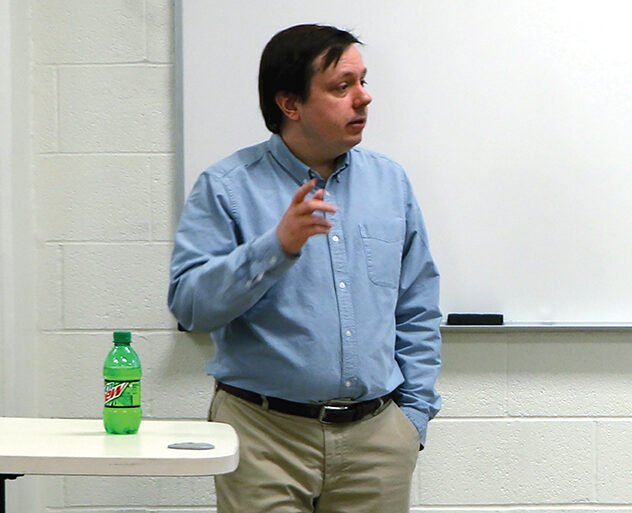
In celebration of Constitution Day, a webinar was hosted Sept. 16.
Michael Snyder, professor of political science, moderated this event.
Panel discussants included Edmund La Clair, professor of history, and Dan Wood, professor of criminal justice.
Snyder said they had the idea for a while to host an online event because of the pandemic that is going on.
Over the summer he started thinking about what to do for Constitution Day since it pops up early in the Fall Semester.
He said he wanted to come up with topics that related to today’s news such as rights of protesters and emergency executive authority.
“We’re always trying to do something that’s relevant, that’s why we picked the topics,” Snyder said.
Snyder said everyone has a right to peacefully protest but there are stipulations to it such as not blocking roads and having proper permits to protest.
La Clair compared today’s violent protests to the French Revolution.
He said, during the 18th century, the French were more tolerant of radical protests than the United States.
In comparison to the French, the United States wanted to avoid negative activities like violent protests.
Wood said citizens have the right to assemble peacefully but once someone violates laws, it is no longer considered peaceful.
“If you wanted to do a protest in the road, you would have to get a parade permit, so if you wanted to do that in Monroe from the Board of Trustees, it’d be considered a parade and not a protest,” Wood said.
Permits are generally approved but can have restrictions placed on them.
“When you apply for a parade permit, you have to take into account what traffic you are tying up, police overtime, and all that stuff becomes a part of the fee but if it’s a small group then it discourages the whole thing,” he said.
Snyder mentioned the sit-in protests of the 1960s where Black people would sit peacefully in diners and other public “White Only” spaces.
Despite the protester’s lack of direct action, protesters would still be arrested for trespassing under segregation rules of the establishment.
“They were doing something good even though it was dangerous to do,” Snyder said.
Wood and La Clair discussed the power that the president and governors can invoke in order to shut down locations such as churches and enforce masks mandates.
La Clair said the dynamic becomes interesting with this idea, leading back to the American Revolution.
La Clair said while the governor can shut down businesses and locations, the president cannot stop the governor. Congress, however, has the ability to do so.
Snyder said he has great colleagues such as La Clair and Wood who helped with this presentation on political, criminal justice and history view.
“I liked bringing them in on it. They helped round out different ways to discuss the different topics,” Snyder said.

